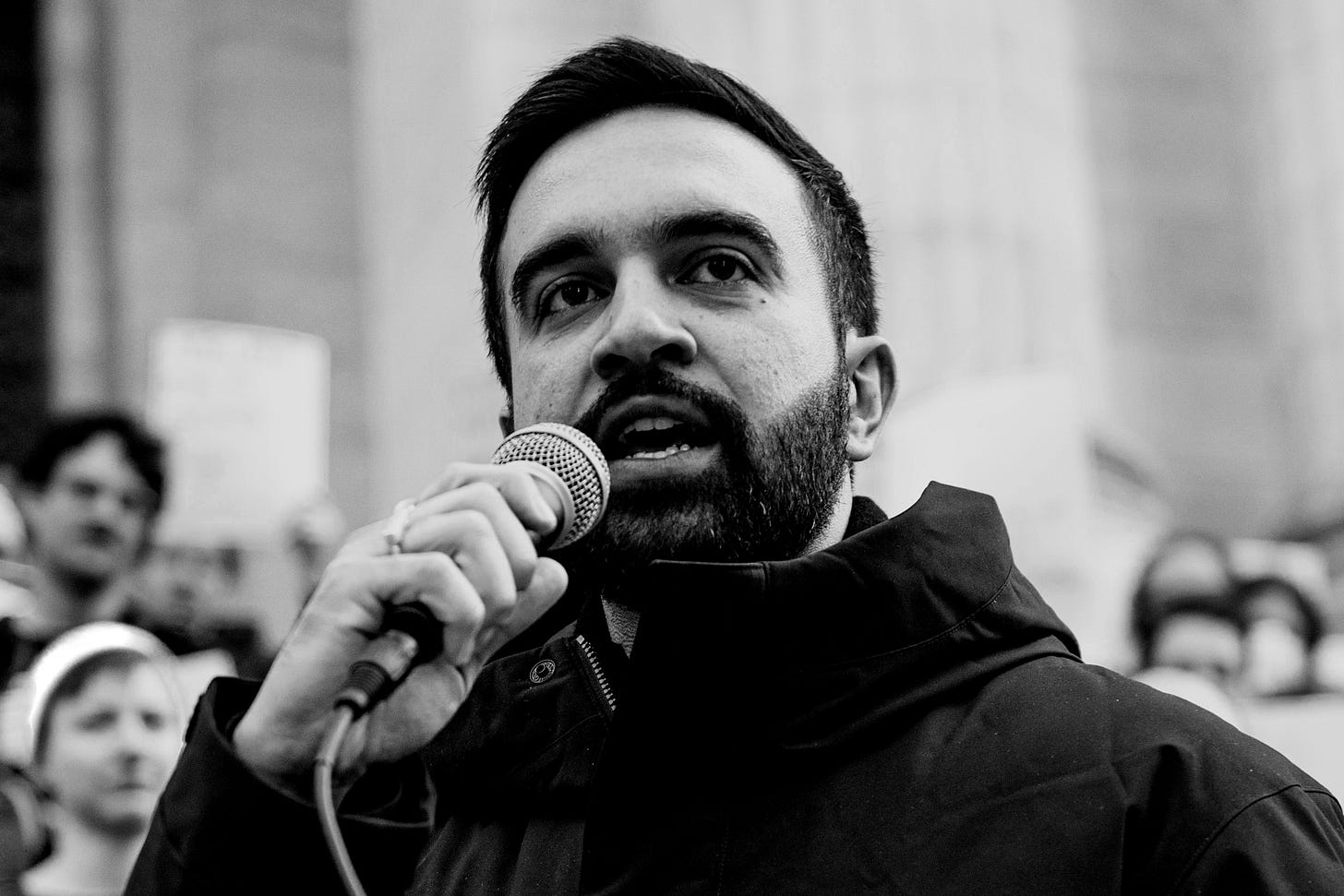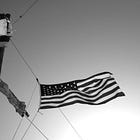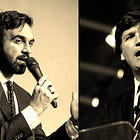The Mamdani Moment and the Future of American Jewry
The election of an openly anti-Zionist mayor in the most Jewish city in the world may mark the start of an uncomfortable new chapter in American Jewish life

When I boarded my flight home at JFK, polling places were still open across the city’s five boroughs. By the time I landed in Tel Aviv, the results were in and a strange new era had begun in the most Jewish city in the world.
It was a grim bookend to a trip that had started with a dilemma that I had never experienced before in America. Landing in Denver from London, I instinctively put my hand in my jeans pocket to extract my kippah, and then hesitated. While I have long since gotten used to concealing my Jewishness in Europe, this was the first time I found myself wondering whether I should do the same in the land of my birth.
As it turns out, I’m not the only one hesitating.
Over the course of my six-day trip, I heard numerous accounts of Jews who are taking steps to hide their Jewish identity — refraining from wearing Jewish symbols, removing mezuzahs from the entrances to their homes, changing their names on Uber and DoorDash to sound less Jewish.
While some would dismiss these precautions as paranoia, they are not without justification. Several days before I arrived in New York — my city of birth — a 59-year-old Israeli tourist was punched in the face outside Mr. Broadway, a well-known kosher deli in Midtown Manhattan; the attacker also tore his victim’s kippah from his head and stomped on it. When I had dinner there a few days later, I found myself glancing around the entrance to confirm the coast was clear before hurrying in from the cold.
In the days leading up to the New York mayoral election, there was a sense among many American Jews that something dark was coming. While some of the people I spoke to were convinced that the polls were wrong, most were struggling to come to terms with the inevitable. “How could this be happening?” they asked as they shook their heads slowly, their eyes wide with disbelief.
More than one alluded to Franklin Foer’s masterful — and heartbreaking — 2024 piece in The Atlantic, “The Golden Age of American Jews is Ending.”
“It’s true,” I overheard one older woman say to another as we waited to board the plane to Tel Aviv, a setting so poetic that the whole thing could have been scripted. “We had been living in a golden age.”
One day after Zohran Mamdani’s victory, scholar and former White House aide Tevi Troy wrote an op-ed in The Wall Street Journal in which he shared his decision to start concealing his kippah under a hat when visiting New York.
“One reason for the spate of attacks on religious Jews in New York in recent years has been the belief that antisemitic assaults won’t be punished,” he wrote. “My fear is that Mayor Mamdani will encourage even more impunity.”
“There’s nothing I can do about any of that now,” he concluded. “The voters have spoken. But I can make sure that I’m more careful on my regular trips to the Big Apple. If you see me walking around in Zohran Mamdani’s New York, I’ll be wearing my hat.”
It is easy to argue that Mamdani’s election is an outlier, an exception rather than an indication of a new rule in American politics. It was, to a large extent, a perfect storm: a field split between several scandal-plagued candidates who bickered with one another and refused to drop out, paving the way for the progressive, TikTok-savvy candidate to rise to the top on a cloud of populist promises. New York is also the bluest of blue cities and is the home base of the Democratic Socialists of America, the extremist group of which Mamdani is a member and which mounted a sophisticated field operation in support of his campaign, flooding the city with tens of thousands of volunteers deeply committed to putting him in office.
But even if, contra Frank Sinatra, the fact that a far-left candidate made it there doesn’t necessarily mean he could make it anywhere, Mamdani’s victory in New York should give us all pause.
For Democrats, this is a moment of reckoning. I am not a Democratic strategist, and this isn’t what this piece is about, but the party should ask itself whether it truly wants Zohran Mamdani — whose radical views and positions are at odds with those of most Americans, and whose margin of victory was far narrower than some have suggested, despite the favorable conditions detailed above — to be its standard bearer. It is no coincidence that the Republicans are reportedly planning on prominently featuring the controversial mayor-elect in their pitch to centrist voters ahead of the midterms.
And yet, it is also clear that the rules of the game have changed, and what has gotten candidates elected in the past won’t cut it anymore. That so many prominent Democrats are running scared and are scrambling to get on the Mamdani bandwagon is due, in large part, to the party’s failure to cultivate young, moderate, electable leaders, and to build the nationwide field infrastructure to support them. The DSA is on to something; Democratic leaders who want to see their party govern again should take note.
But the ramifications of this moment for American Jews are even more consequential.
It is hard to decide which of the data points emerging from this election should most trouble the Jewish community. Perhaps it is the fact that, even when told by pollsters that “Globalize the Intifada” is viewed by some as a call to violence against Jews, a plurality of young voters said that Mamdani’s refusal to condemn the chant made them much more likely to vote for him. Or perhaps it is the fact that, time and again, in the lead-up to the election, Jews were gaslit and told that their alarm over Mamdani’s inflammatory rhetoric, extremist positions, and dubious associations amounted to nothing more than Islamophobia. Or perhaps it is the fact that a majority of New Yorkers ultimately ignored the concerns of their Jewish neighbors and voted for a man many Jews regard as a threat. Or perhaps it is the fact that a sizable minority of Jews themselves voted for him despite his self-identification as an anti-Zionist, a position viewed by 85% of American Jews (and non-Jews) as a form of antisemitism.
There are any number of disquieting takeaways from the election, but the most salient is this: what would have been unthinkable only a few months ago — that an individual who is openly hostile to a central tenet of Jewish identity, and who holds views and aligns himself with groups considered by the vast majority of Jews to be antisemitic, could be elected mayor of the city with the largest Jewish community in the world — has come to pass.
Positions that would have been disqualifying for a candidate for public office until very recently are now not only acceptable — they are increasingly viewed as an electoral asset. And while it may be tempting to dismiss Mamdani’s election as an aberration, for all of the reasons noted above, the reality is that it is reflective of unsettling trends on both extremes of the American political map that are now seeping into mainstream discourse. In races for city, state, and federal office; on social media and the airwaves, incendiary rhetoric on Israel — often laced with classic antisemitic tropes — is being normalized, and Americans on both sides of the political map are becoming more receptive to it.
American Jews may soon have to contend with a reality that is dramatically different than anything most of them have ever known, one in which it is increasingly uncomfortable — and, at times, downright unsafe — to be openly Jewish and proudly attached to Israel in America.
Back in July, I wrote about what a post-Zionist America could look like and how American Jewish leaders — and Israeli officials — should prepare for it. I won’t rehash it here, but I will say that what seemed like a remote prospect just four months ago no longer feels quite so far off. And while a changed America may not be inevitable, the forces aligning against the Jewish state — and, increasingly, against American Jews — are consolidating their efforts at a pace that we can no longer ignore.
But although I saw more knitted brows during this most recent visit than I ever had before, there were two other anchors to this trip that offered another way of viewing this moment in the life of American Jewry.
The evening after I landed in Denver, I addressed more than 800 members of the local Jewish community at an event attended by both the governor and the city’s mayor. It is, I was told by the local Jewish federation’s CEO, one of the community’s largest annual gatherings, eclipsed only by the yearly celebration of Israel’s Independence Day.
Several days later, I attended a gala event in New York celebrating 25 years of Taglit-Birthright Israel. More than 1,000 people packed the Manhattan venue as we heard from one alumnus after another about how their Birthright experience transformed — and, in some cases, catalyzed — their relationship with their Jewish identity.
While strengthening community and deepening Jewish identity may not, in themselves, turn back the tide of hate threatening American Jews, they are essential if we want to stand a fighting chance.
A Jewish community that is more unified and more fortified in its identity — made up of proud Jews who understand, cherish, and hold foremost the ties that bind them to one another, to their heritage, to their people, and to their land — is one that can, and will, weather any storm.





FIRST STUDY HOW THE MAYOR OF LONDON INSTALLED HIS JEW HATING INTO LONDON. HE DID IT WITH WHISPER. WITH PRAISING JEWS AND DENOUNCING HATE . IT WORKED AND HATING JEWS IN IS SEEN AS ONLY RIGHT. AND ATTACKING THEM IS NOT PROSECUTED.. MANDAMI WILL GO DOWN THE SAME PROVEN PATH.
BUT THE REAL QUESTION FOR NY JEWS. HOW TO NOT GET MURDERED. SIMPLE ARM YOURSELF. YOU ARE KIDDING YOURSELF IF YOU THINK THERE WILL BE A LEGAL WAY. UNLESS THE HATERS ARE GUNNED DOWN WHILE IN THE ACT YOU ARE DEAD. OF COURSE THE LAW WILL BE AGAINST YOU--- DEAD OR MOST LIKELY PRISON. BUT THESE HATERS ARE COWARDS THEY WILL RETHINK ATTACKING JEWS IS A SAFE SPORT.
Good piece, but I think (hope) the significance of Mamdani’s may be overrated
Extremely long data-based take here. Despite appearances, it was arguably a pretty normal election
A Graveyard of Bad NYC Mayoral Election Narratives
The electoral outcome and its drivers were far more banal than most seem willing to recognize.
MUSA AL-GHARBI
NOV 11
https://open.substack.com/pub/musaalgharbi/p/a-graveyard-of-bad-nyc-mayoral-election?r=yxvd&utm_medium=ios